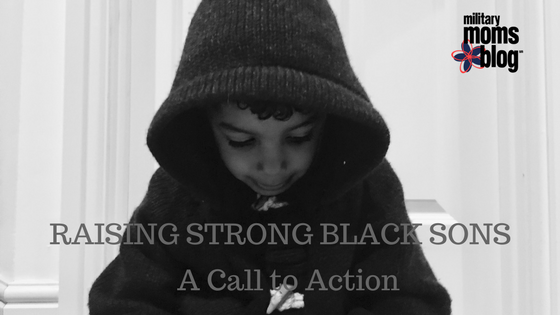
It’s one of the biggest struggles military families face: ensuring a quality education for their children. Frequent moves and their resulting long-term disruptions make continuity of education difficult; and while other families often take school-district quality into consideration when searching for a new home, military families are generally not afforded such a luxury.
It’s a situation that can feel both frustrating and overwhelming, but don’t lose hope! As an educator who has worked on a military installation, I have witnessed first-hand a high-turnover student population. Watching their struggles and triumphs left me constantly searching for ways to help those in transition and ensure the continued success of those who might PCS at a later date.
Eventually, this led me to develop 10 keys to academic success.
Being that your student will encounter a variety of educators with differing personalities, policies, and preferences, it is you, the parent, who uses these keys to unlock a world of opportunity. While these tips are universally beneficial, they are tailored specifically to the needs of military families.
1.) Buy School Supplies

Sound too simple? Trust me, it’s overlooked more than you might think. Sometimes it’s due to the chaos of a PCS, where basic household necessities might take priority. Sometimes the materials were bought but nobody ensures they get organized appropriately in the backpack. Either way, this is a simple but crucial step. And while we all know that PCS’s can be stressful, this needs to be a priority. Put it at the top of your list! At various points throughout the school year, take stock and resupply as needed.
Rest assured, most teachers are prepared for students lacking supplies. After all, it is one of the core causes of our daily headache. Many of us choose to provide assistance as needed. This past year, I left a box of mini pencils on my bookshelf that students could use without asking. Another colleague invested in stackable Rubbermaid drawers filled with paper, pencils, and other supplies at each group of desks. But we simply can’t do it all — and it’s important that we don’t!
Here’s why providing your student with adequate supplies is so crucial: it helps your student develop self-agency. Relying on others, whether teachers or friends, to provide basic materials deals a powerful blow to independence. It’s difficult to feel competent when you can’t provide for yourself. This begins a negative cycle that directly impacts learning and confidence.
Help your child by going above and beyond. Provide multiple writing utensils: black pens, blue pens, grading pens, mechanical pencils, traditional pencils, etc. Make sure a variety is available at any given time. Strange as it might sound, such choices help students engage in their education. Plus, “one-pencil-syndrome” practically guarantees that said pencil will be lost before 2nd period.
2.) Maintain High Academic Standards
This cannot be stressed enough. Our kids are capable of so much more than we give them credit for. My students often ask at the beginning of the year if I’m a hard teacher. I tell them that I definitely have high expectations, but that it’s only because I know they are all capable of achieving them. You would be amazed at how many have never had an adult push them out of their comfort zone and how many rise to the challenge.
It’s such a privilege to witness the growth in confidence that occurs in these students, but it must be a team effort. Reinforce those high expectations at home!
Don’t allow average to become the baseline because it’s “just” elementary or middle school.
When academic success is established as a priority early on, it will help your child navigate new schools with greater confidence and perseverance. Such students are less likely to become overwhelmed by the changes of a PCS because they are constantly receiving the message “you will be successful” rather than “I hope you can be successful here.”
3.) Stay Positive
As students puddle jump from school to school, the one constant in their life is you. I know it might feel like they aren’t listening to you but, trust me, they are! Be careful about what you say in their presence. Your words matter.
Of course, it’s perfectly normal to have gripes and want to vent. We military spouses tend to find things we love about certain duty stations — whether it’s a particular feature of a house, a friendly neighborhood, or a school that perfectly fits our needs — and it can be a letdown to transition into a new, perhaps less-than-stellar, situation.
I have witnessed students begin to struggle, seemingly out of nowhere. They no longer push to reach their potential or their previously pleasant attitude turns sour. Not surprisingly, I tend to find similar attitudes when parents are contacted. Sometimes problems began months before through administration that I was unaware of. Sometimes the family is focusing on an upcoming move and basically “over” that particular duty station.
Whatever the case, it is crucial to exude positivity to your child. Their feelings inform their actions. Their inner voice becomes their reality. Help them make it a good one, no matter what.

4.) Teach & Model Communication Skills
In our electronics-driven world, it’s no surprise that many young people are more confident sending a text message than ordering dinner at a restaurant. They often struggle to read non-verbal cues and are uncomfortable with face-to-face contact. The truth is, communication is a skill. It must be taught and practiced, and you are your child’s first teacher.
While this skill is vital for everyone, it is especially important for military kids. They are often required to introduce themselves to new people and, fair or not, first impressions are always important. With so little time to meet the needs of our students, we must use any and all clues to determine potential strengths and weaknesses.
Does your child project a willingness to learn or does he appear annoyed by expectations? Do his questions reflect pride in work or frustration and a self-defeating attitude? Without proper communication, we can’t effectively serve your student.
So how can you help? Model proper communication from the time your child is young and use available opportunities to reinforce. Some key areas to work on include:
– Eye Contact: This communicates both respect and engagement.
– Voice Projection: I wish I could find words to accurately convey how frustrating it is when students repeatedly mumble their questions but, alas, such words don’t exist.
– Acknowledgement: Responding to basic questions, as well as non-verbal signs like nodding, help us determine that your child has not, in fact, drifted into a trance-like open-eye state.
– Personal Space: Communication includes interpersonal behaviors. Teaching a healthy respect for boundaries is key. That’s a polite way of saying, for the love of God don’t walk up behind me and look at your grade over my shoulder — stand on the appropriate side of the desk!
5.) Emphasize Kindness
Learning about “The Golden Rule” tends to be a focus in early grades, while taking a backseat to the academic rigors of later years. This, however, does not serve one well in adulthood and becomes especially problematic for military kids who must frequently integrate into new environments.
The truth is, kindness goes a long way. It makes one endearing, approachable, and likable. But, above all, it makes for a genuinely good person.
Cultivating kindness takes effort and practice. Be sure to discuss hypotheticals with your child:
What would he do if a fellow student was eating alone? What would he do if a classmate was being bullied? Thinking through these situations with your child will make him more aware of his surroundings and more likely to respond in a positive manner when they arise.
For all the not-so-fun situations our military kids have to endure, the one great benefit to this lifestyle is the chance to truly empathize with others. Your kid has surely felt insecure, sad, lonely, etc. Teach your child to use those experiences to connect with others. Over time, it will make transitions smoother, making your child more likely to succeed both in and outside of the classroom.
As the school year approaches, take stock of how well you have tackled each of these concepts in the past. What is an area of strength to be proud of? Where could you focus your energy to better assist your child this year?
Make a concrete goal to work toward this month and keep an eye out for the final 5 keys to academic success next month!
Be sure to check out Caitlin’s “Helping Kids Prosper Through PCS Season Part 1 and Part 2.”










